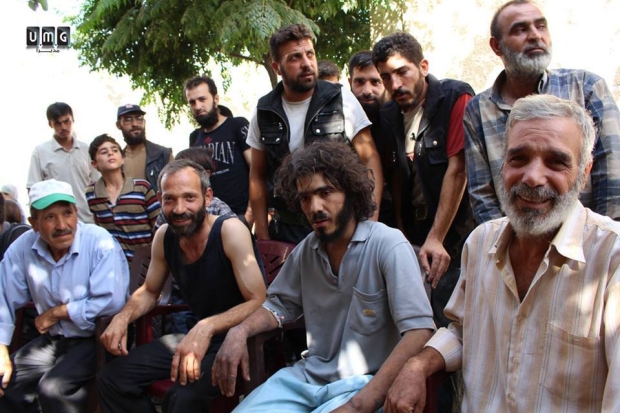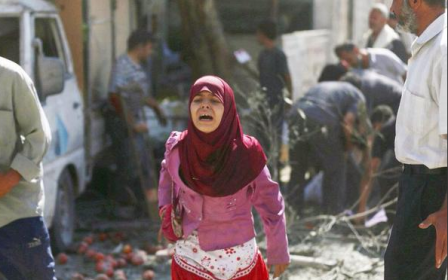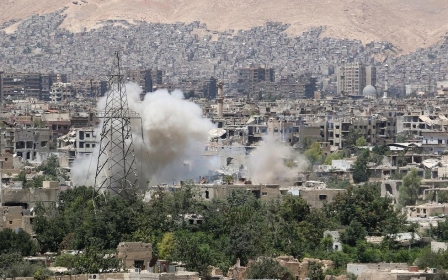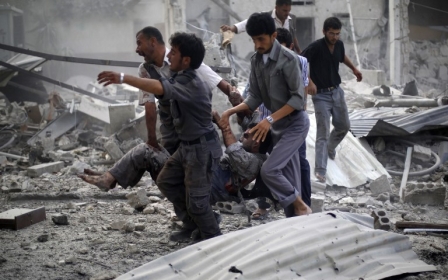Man missing under rubble in Douma returns as ‘Living Martyr’ to his funeral
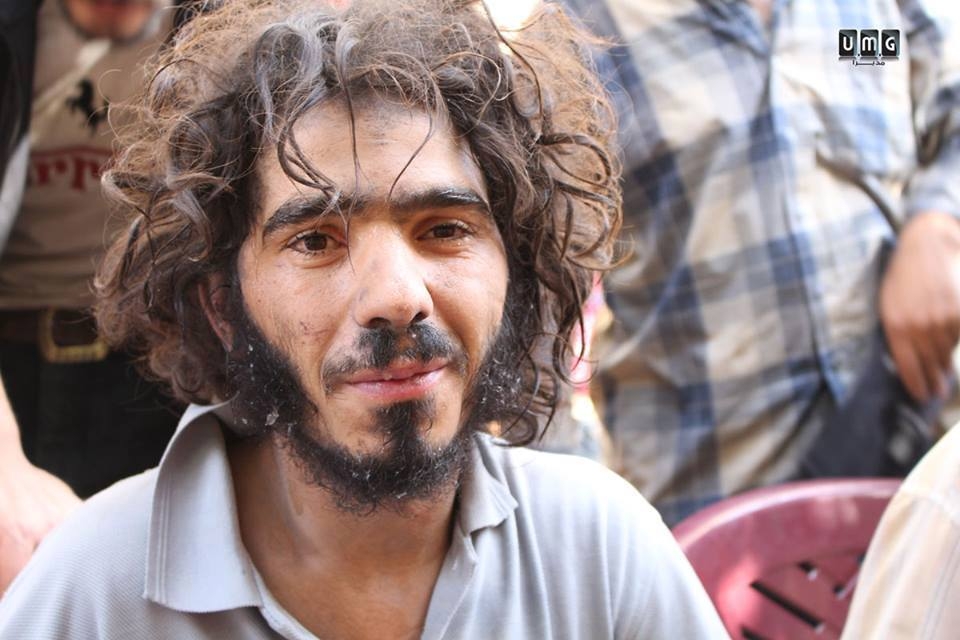
Few can say that they have attended their own funeral, but Mohammed Rayhan did just that, entering his house on Tuesday only to be greeted by his own wake.
Rayhan was in the marketplace in Douma on Sunday when Syrian government forces targeted the site with at least six missiles. According to a spokesman for the Syrian Civil Defence force, more than one hundred civilians were killed and 500 more injured in the deadliest single attack on the opposition-held town in the Damascus countryside.
After the deadly bombings, images were shared by journalists and activists arriving at the scene of the streets running red as tomatoes from upended or smashed fruit and vegetable carts lay mixed with the blood and bodies of those killed.
The force of the blasts tore away the fronts of a number of buildings, and videos published by activists on the ground showed the air thick with dust from debris.
Rayhan’s family feared the worst when their son did not come home, and held a funeral wake on the same day. Typically, a funeral wake lasts for three days. On the third day, however, Rayhan made his way home, dazed and with dust particles still in his hair and beard.
As shock gave away to jubilation, grief was transformed into a cause for celebration.
It has since emerged that Rayhan, who is now being called the Living Martyr by his friends and relatives, was trapped under the rubble with no food or water for three days. On the third day, a rescue team managed to pull him out. Civil defence teams, known as the White Helmets, have saved tens of people, believed to be missing or killed, from under the rubble throughout Eastern Ghouta, the opposition-held bastion outside of Damascus. Nationwide, the White Helmets have resuced over 22,000 people.
The local coordination committee of Eastern Ghouta published photos of Rayhan on its Facebook page, which showed him sitting and smiling next to family members and what used to be a crowd of mourners.
The miracle of Rayhan’s survival was quickly shared on social media by the Syrian activist grapevine. The editor of the website Syria Untold wrote: “We are captured by [Rayhan’s] quiet smile, as if he too can hardly believe he survived … is not man made from clay? He was buried in it for three days and then returned. Was he not just on a journey? He went back to his clay origins and decided to return to us.”
Douma, the capital of Eastern Ghouta has been frequently targeted by airstrikes from the Syrian government, in what authorities justify as the proper response to rockets fired from opposition fighters there at Damascus.
The area is also under siege by Syrian government forces, and is largely under the control of armed opposition group Jaysh al-Islam, led by Zahran Alloush.
In a recent report published by Amnesty International that charged the Syrian government was committing war crimes with its indiscriminate bombing of civilians in Eastern Ghouta, Jaysh al-Islam was also condemned for hoarding food and medical supplies, in addition to arresting activists.
Trapped between the airstrikes of the Syrian government and repression of Jaysh al-Islam, the people in Ghouta face an increasingly dire humanitarian situation.
New MEE newsletter: Jerusalem Dispatch
Sign up to get the latest insights and analysis on Israel-Palestine, alongside Turkey Unpacked and other MEE newsletters
Middle East Eye delivers independent and unrivalled coverage and analysis of the Middle East, North Africa and beyond. To learn more about republishing this content and the associated fees, please fill out this form. More about MEE can be found here.


